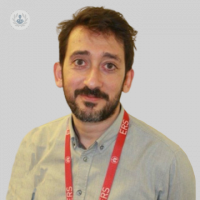Respiratory infections in children
Written by:What are common types of respiratory infections in children?
There are several different types of respiratory infections which can develop in children.
Respiratory infections which commonly occur in children include the common cold (which often develops during autumn and winter), bronchitis, pneumonia, and croup.
Croup is particularly common within children aged between 6 months and 3 years old.

What are the symptoms of a respiratory infection in children?
There are a few signs that your child has a respiratory infection. Symptoms which indicate that your child has a respiratory infection are as follows:
- fever
- cough
- runny nose
- sore throat
- difficulty breathing
- wheezing
- chest pain
- rapid breathing
How are respiratory infections in children diagnosed?
There are multiple methods in which a respiratory infection in children can be diagnosed. In some cases a doctor may diagnose the respiratory infection by completing a physical examination, as well as reviewing the child's symptoms.
Diagnostic tools may also be utilised to confirm diagnosis. These include:
- chest x-ray
- blood test
- nasal culture
- throat culture
How are respiratory infections in children treated?
Different types of medication can be prescribed to treat respiratory infections in children. Over-the-counter medications can aid symptoms including fever and pain.
Decongestants can be administered in order to reduce nasal congestion and antibiotics may be prescribed if the cause of the infection is bacteria.
Inhaled bronchodilators can also be prescribed to aid opening of the airways and help the child to breathe properly.
What can be done to prevent respiratory infections in children?
Prevention of respiratory infections in children is linked to good hygiene practices. Promoting frequent handwashing and teaching children to cover their mouths when they cough or sneeze can contribute greatly to prevention of respiratory infections.
It is also important to vaccinate your child against frequently occurring respiratory infections such as pneumonia and influenza.
Furthermore, it is also advisable to ensure your child maintains a distance from sick people and to avoid crowded places during cold and flu season (autumn and winter as mentioned above), if possible.
Following these steps can contribute greatly to a reduced risk of infection.


